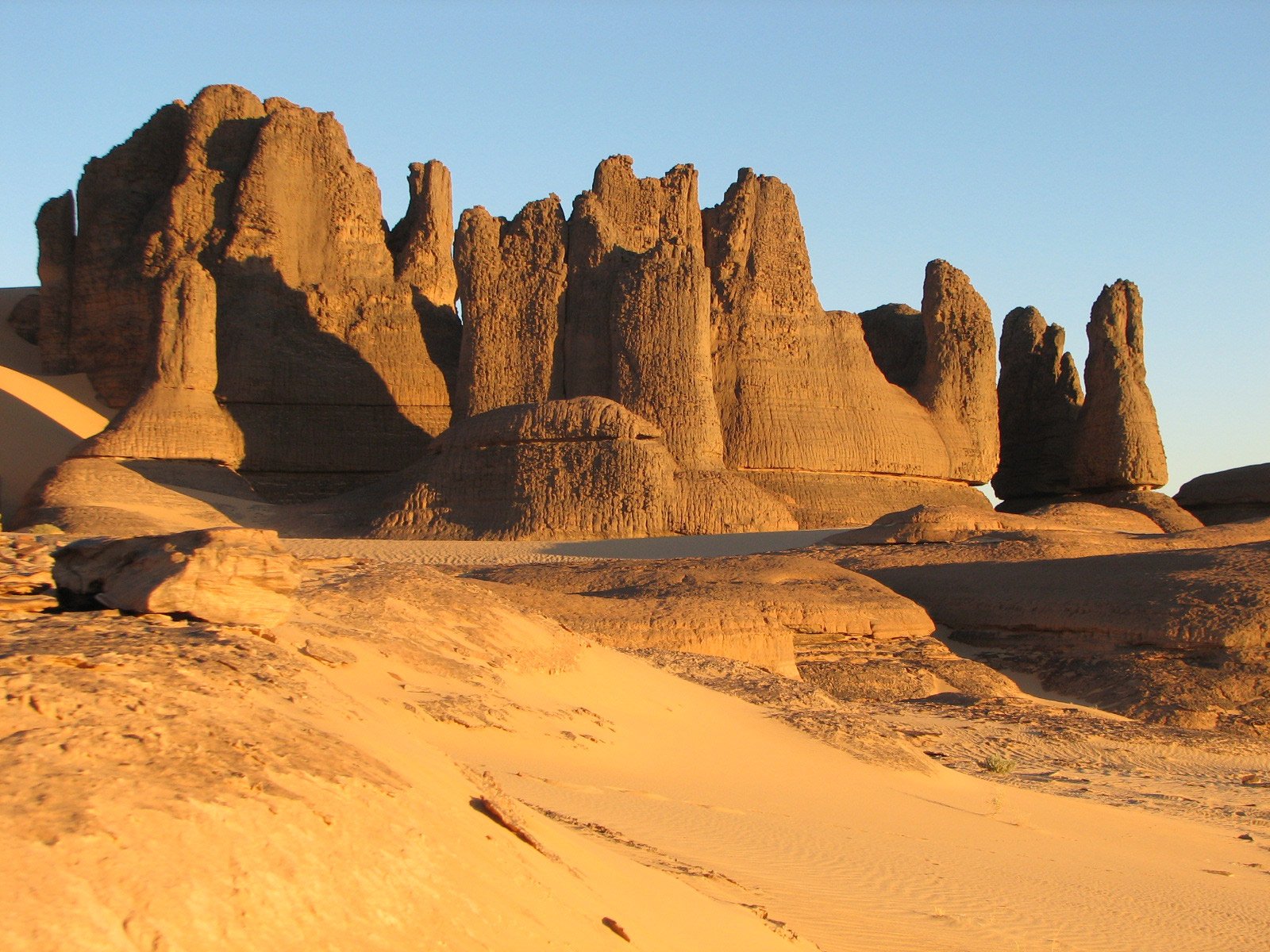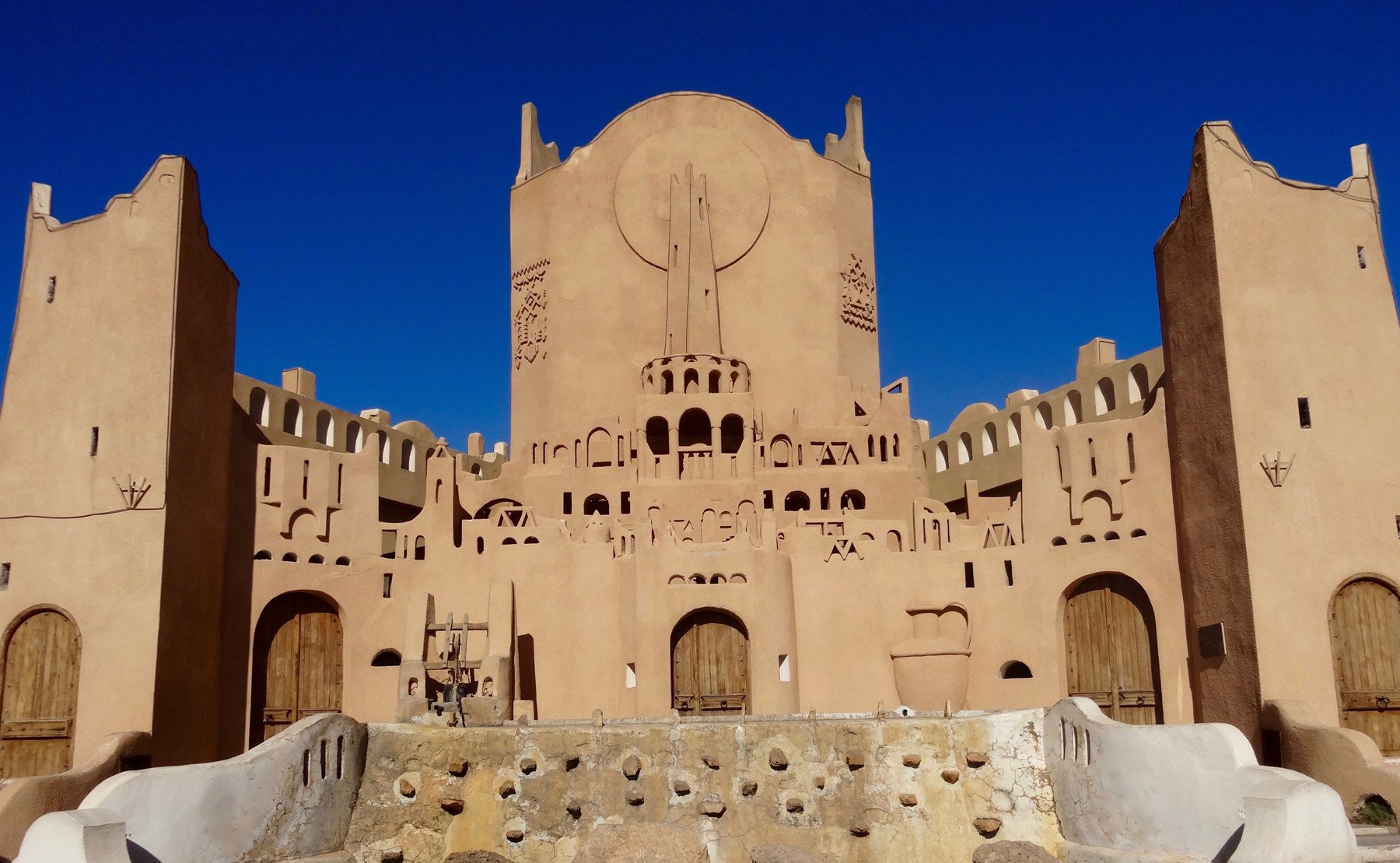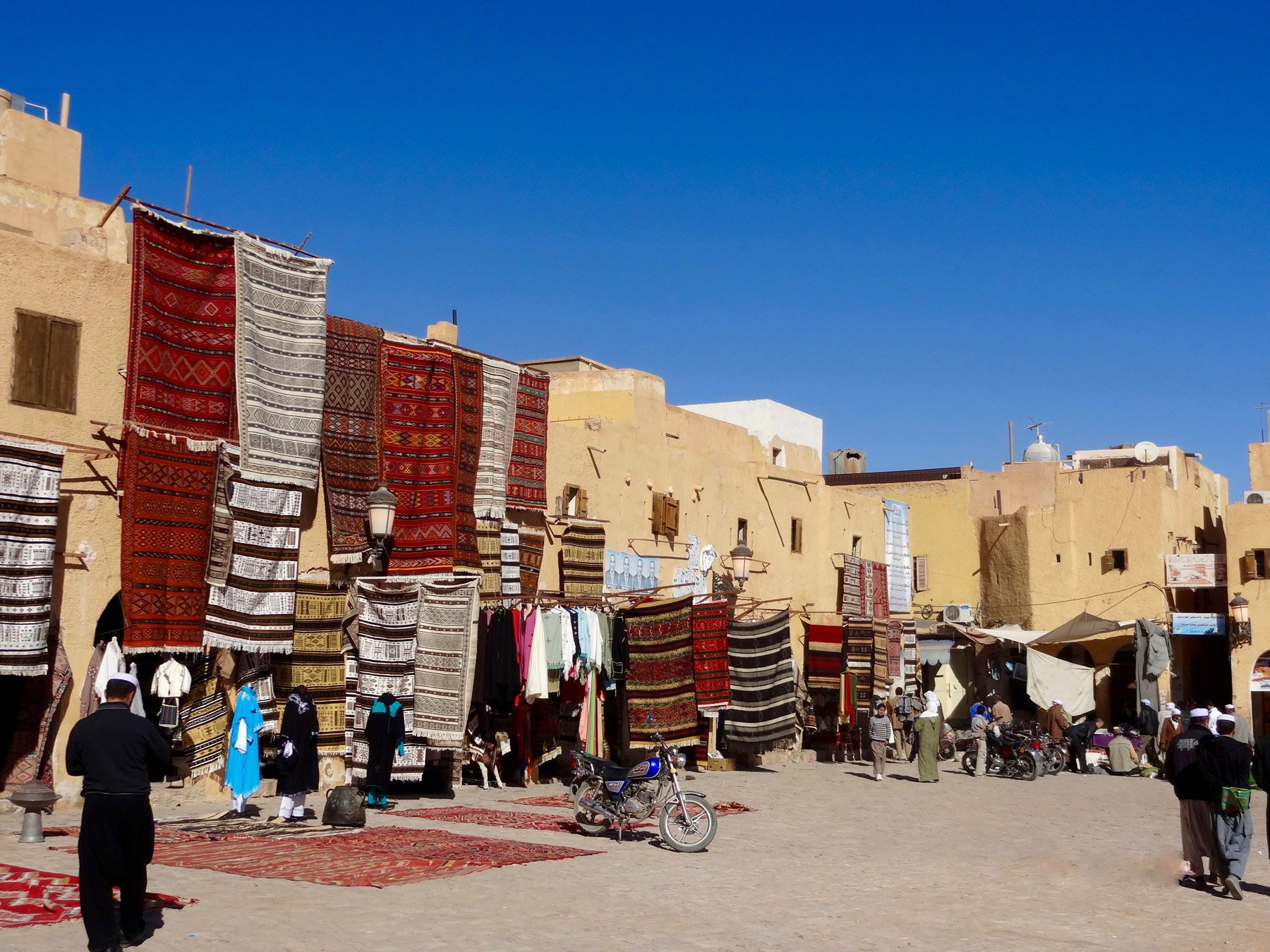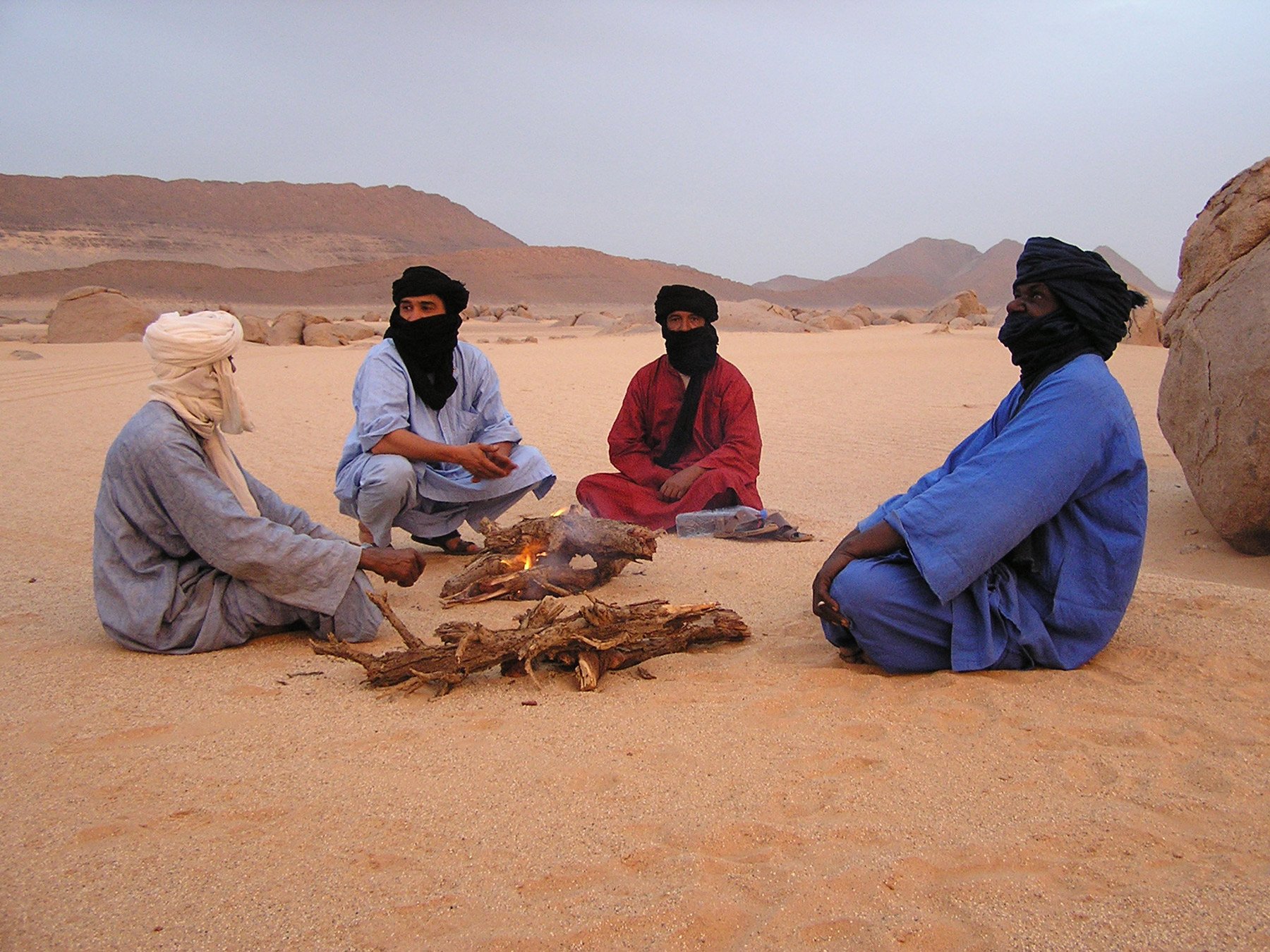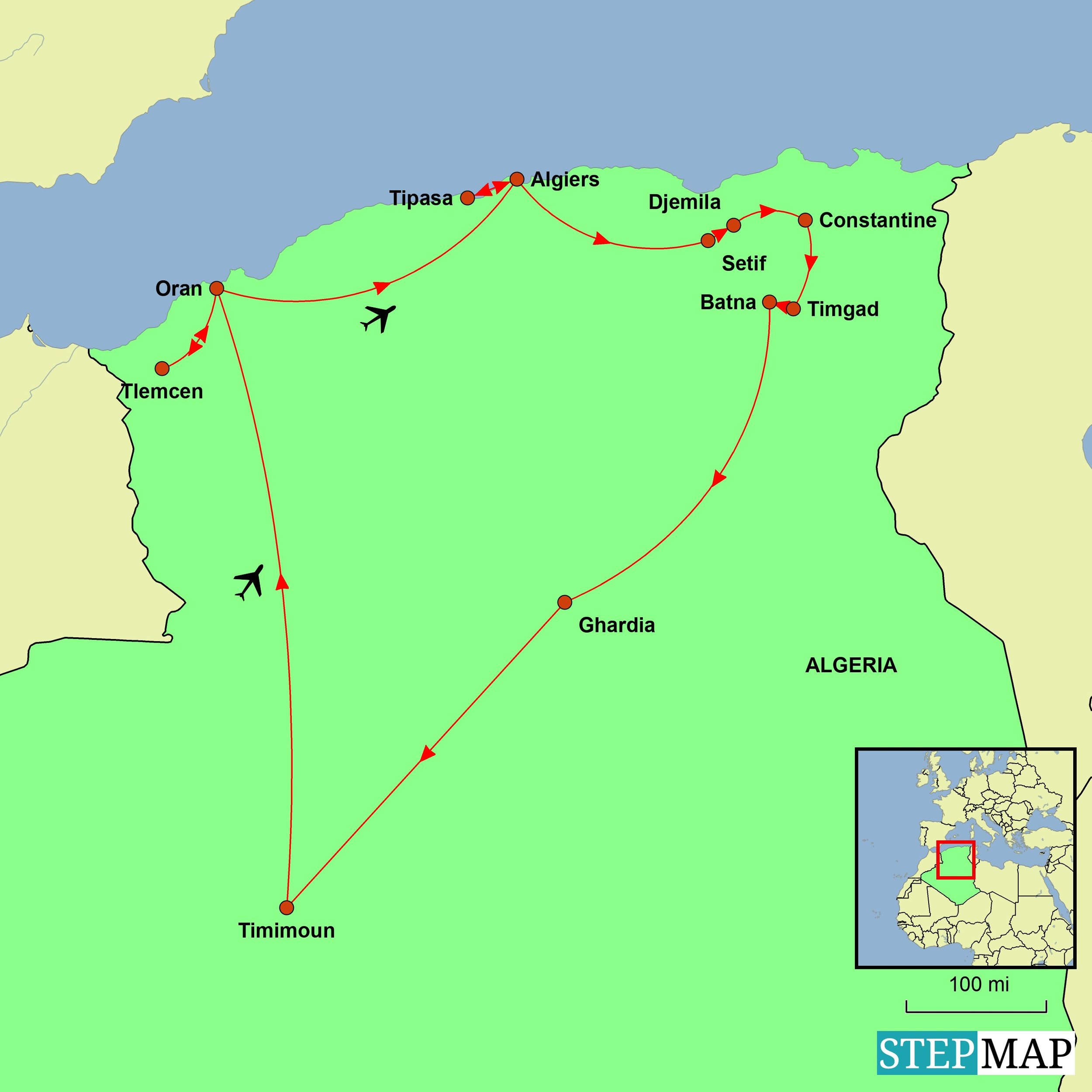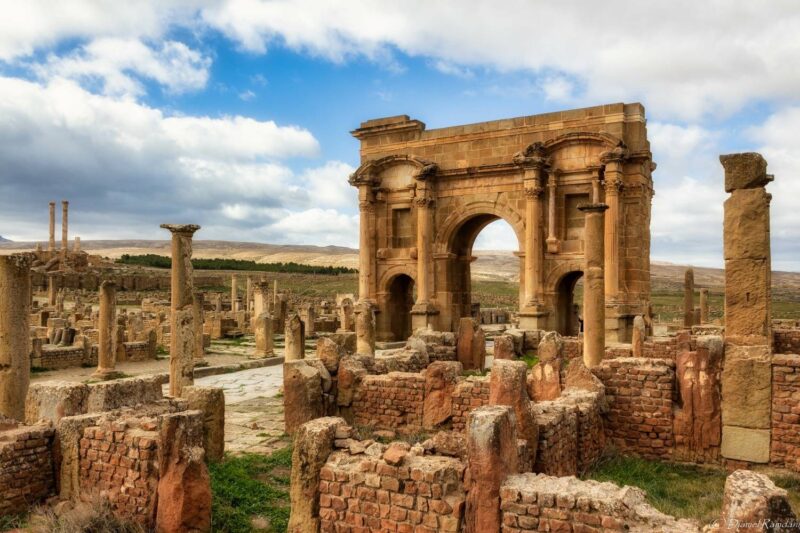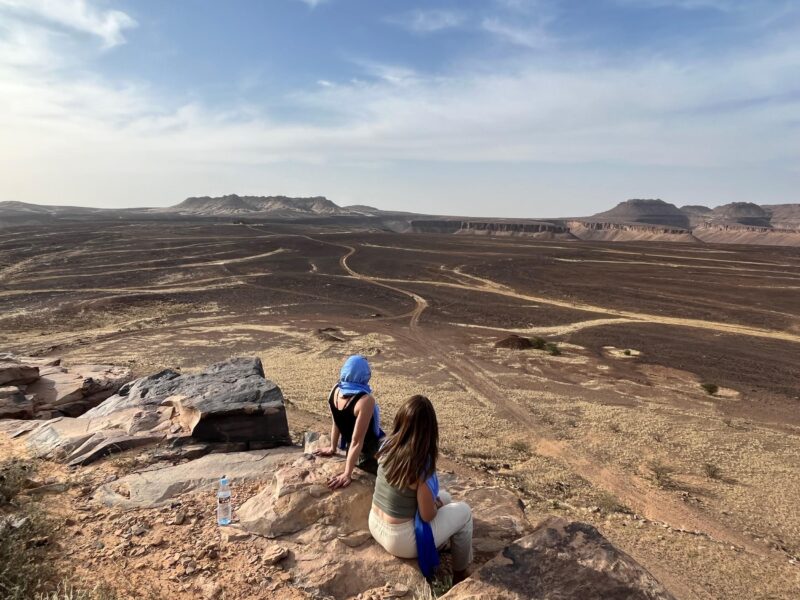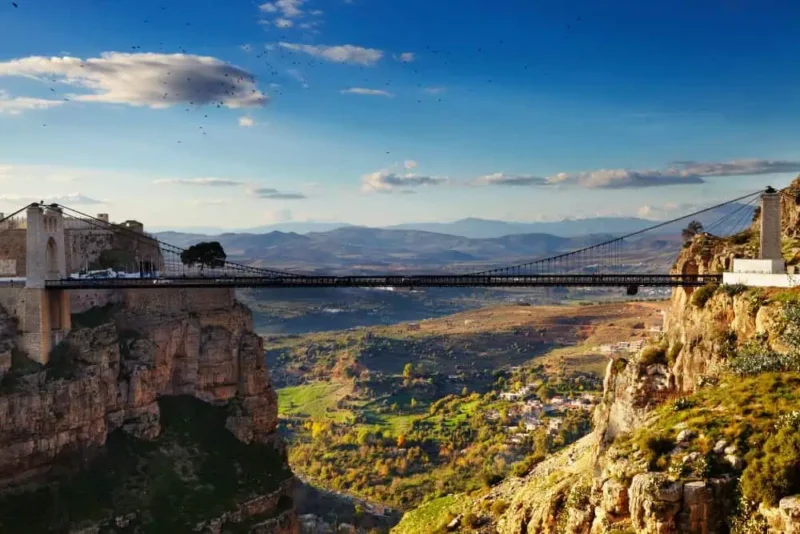Foreign Office Travel Warnings
Before booking your tour, please familiarise yourself with the country specific information provided by the UK’s Foreign, Commonwealth and Development Office (FCDO) – www.gov.uk/foreign-travel-advice. This includes important information such as latest immigration requirements, and details of any travel advisories.
We constantly monitor the advice posted by the FCDO. In particular we will always advise clients of any travel warnings. At present there are no warnings against travel to the parts of Algeria that we visit on this tour. Please feel free to contact us should you have any specific concerns or would like to know in detail what measures are being taken to ensure visits remain trouble free and without incident.
It should be noted that this information applies to British citizens. Other nationals are asked to check the current position of their respective government.
Security
The Algerian authorities take the safety and security of tourists very seriously and a Police/Army escort is often provided for road journeys.
Visa Information
At the time of writing British, US and Australian nationals require a visa for a tourist visit to Algeria. For further details please visit the applicable website shown below.
British Nationals – www.gov.uk/foreign-travel-advice
US Nationals – travel.state.gov/content/travel/en/international-travel.html
Australian Nationals – www.smartraveller.gov.au
Other nationals should check the latest requirements with the authorities in their home country, or with the destination’s nearest embassy or consulate.
Should you require any documentation to support a visa application, such as a letter of invitation, upon request this will be provided by Undiscovered Destinations after receipt of your balance payment.
As it is the travellers’ responsibility to ensure that they meet all entry requirements it is essential that you check the rules and any other conditions at the time of booking and again when making your balance payment. In addition, we would strongly advise that you make a final check around two weeks before your arrival. This is important as requirements can change at short notice. Undiscovered Destinations, when possible, will provide guidance about entry rules, but in the first instance please contact the relevant authorities, including the applicable embassy or consulate for assistance.
You must ensure that you have no Israeli stamps in your passport.
Passports
It is your responsibility to ensure that you are in possession of a full passport, valid for at least six months after the date of return to your country.
We strongly advise that your passport contains a minimum of two blank pages, as this may be a requirement of the local immigration authorities. In addition, certain countries will stipulate that the two blank pages are opposite each other. If you are unable to meet these requirements, you may be refused boarding by your airline or denied entry by the immigration authorities.
For specific information about the requirements for your destination please check with the country’s embassy or consulate. Alternatively, UK citizens can visit www.gov.uk/foreign-travel-advice.
Vaccinations & Protection
As with travel to most parts of Africa, we strongly recommend that you contact your doctor’s surgery or a specialist travel clinic for up-to-date information, advice, and the necessary vaccinations. For a visit of less than one month, almost certainly you will be advised to have immunisations against the following: Diphtheria and Tetanus, Hepatitis A, Typhoid, Meningitis. The use of a DEET-containing insect repellent is highly recommended.
The legal status and regulation of some medicines prescribed or purchased in your home country can be different in other countries. If you’re travelling with prescription or over-the-counter medicine, read this guidance from NaTHNaC on best practice when travelling with medicines. For further information on the legal status of a specific medicine, you’ll need to contact the embassy, high commission or consulate of the country or territory you’re travelling to.
Travel Insurance
It is a condition of booking with Undiscovered Destinations that you have adequate valid travel insurance. It is your responsibility to arrange appropriate travel insurance and ensure you have read and understood the full terms and conditions of your travel insurance policy to ensure that you are covered for all activities you intend to undertake whilst on the tour, including all optional activities. Your Insurance Policy must fully cover you for medical expenses (including cover for Covid-19 conditions) and emergency repatriation to your home country and be valid for the entire duration of your holiday.
Local Conditions
When travelling to our destinations, many of which are underdeveloped and untouristed by mainstream tourism, a good deal of patience and a sense of humour is an important attribute. This will help you to cope with problems such as ageing or poor infrastructure and when maintenance may not be as high as we would always like.
The choice of appropriate accommodation in some towns and cities (particularly the smaller places) can be limited, and standards of both service and maintenance can be less than polished. Guides and other service providers in some of our destinations do not always have the decades of collective practice and experience that their counterparts in more developed countries can draw upon. Although we will always try and resolve any issues as quickly as possible, on occasions there may be some shortcomings which no matter how hard we try will be unavoidable.
